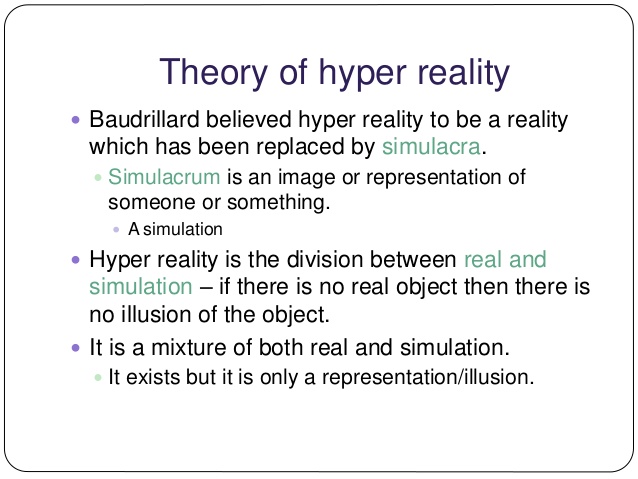

The problem with Baudrillard's pessimism is that he assumes there is only one culture in the world - postmodern culture. I want to propose that the central trope of the novel is simulation, which immediately invokes Baudrillard's despairing conclusion that the dominance of simulacra and hyperreality in postmodern culture puts it beyond any kind of political intervention. The anxiety and mendacity of Australian cultural life and its political subjection to yet another imperial power are outlined with mischievous clarity in the novel, which hinges on the idea of culture as performance and cultural struggle as the contest of different forms of theatre. Peter Carey's The Unusual Life of Tristan Smith seems uncannily prophetic, not so much in its prediction of war but in its reading of the continuing post-colonial dilemma of Australia's relations with a neo-imperial power. The intentions of this paper is to aptly explicate Baudrillard’s theories of ‘reality’ (what he calls hyperreality) and simulation, and to show in what way Jean Baudrillard traces the trajectory of the postmodern. Baudrillard, however, does not deny the existence of the self or reality, but he asserts that those two things have been replaced and undermined by technology and an excess of information. Postmodern philosophers, such as the French social theorist Jean Baudrillard, sought to explain that living in the postmodern age does not involve talking about such things as the self (under siege) or reality, because such subjects no longer exist. The latter seeks to assert that knowledge and truth are the product of social, cultural, and political systems, and as such, they are merely contextual and vary in many degrees. Various tenets of Enlightenment rationality, such as the existence of objective realities and absolute truth, were exceptionally questioned by the postmodern philosophy.

The postmodern era marks a trajectory of disenchantment and skepticism towards Western meta-narratives and pre-established truths.


 0 kommentar(er)
0 kommentar(er)
